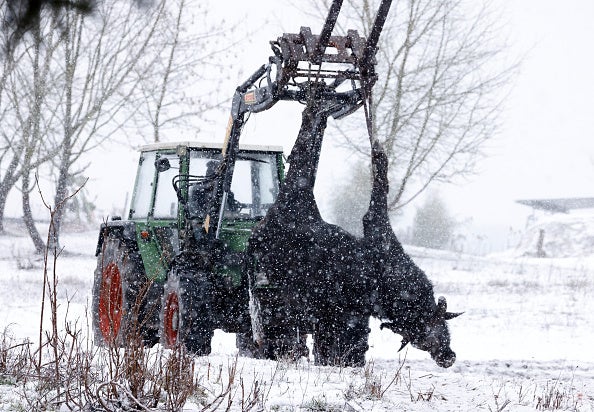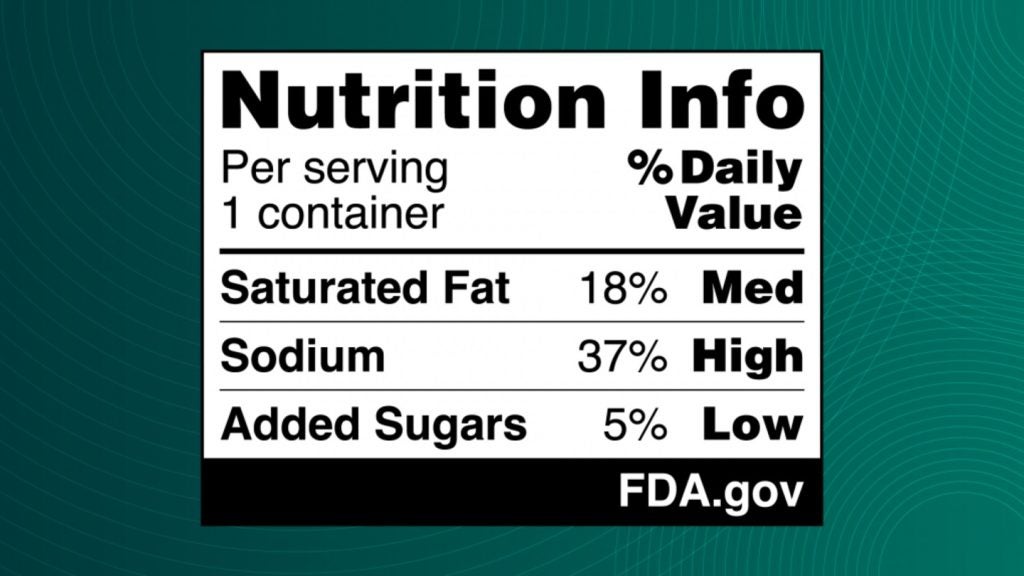What has happened?
Germany has detected its first case of foot-and-mouth disease (FMD) since 1988. It was discovered on Friday (10 January) and traced to water buffalo in Brandenburg, near Berlin.
The affected animal was destroyed and a protection zone of three kilometres radius and a surveillance zone of ten kilometres radius were established. Veterinary offices examined and sampled other animals in the vicinity but samples were found to be negative.
Efforts are being made to determine how the affected animal became infected.
What has been the impact?
Not surprisingly, given FMD is a highly contagious disease, an almost immediate ban on German meat, and some dairy products, was announced in several markets. In the UK, the Department for Environment, Food and Rural Affairs (Defra) confirmed the ban on German meat imports in a statement on Monday (13 January).
The ban includes meat from so-called ungulates, generally classified as animals with hooves, and which would encompass pork, beef, sheep and goat meat imports, as well as wild game. Live animals are also included.
Defra said milk, “colostrum and their products” would also feature in the ban, along with animal by-products “unless treated to effectively mitigate the risk of FMD”.
The ban only covers Great Britain - it does not extend to Northern Ireland.
The UK is acutely aware of how damaging an outbreak of FMD can be. In 2001, 2,000 cases of the disease were discovered on farms across most of the British countryside. More than six million cows and sheep were slaughtered on farms in an attempt to halt the disease. However, a limited number of infected animals were exported to Ireland and The Netherlands. A later outbreak, in 2007, resulted in the EU banning the export of live animals and all fresh milk and meat from most of the UK.
What about other countries?
South Korea has reportedly taken the move to ban imports of pork from Germany, effective from last Saturday, according to the South China Morning Post newspaper.
The publication quoted the Asian country’s agriculture ministry as saying tests were being conducted on German pork products delivered to South Korea since 27 December, while 360 tonnes of pork from the EU trade bloc member were undergoing quarantine testing.
The EU is a different case. In the internal market, trade from FMD-free areas in Germany is still possible - under so-called regionalisation rules. Whether individual member states - of which the UK is no longer one, remember - will decide to introduce bans is yet to be seen.
EU member Ireland’s Department of Agriculture, Food and the Marine had not introduced a ban at the time of writing but said it was “taking action” to support local livestock following the FMD outbreak in Germany.
“Ireland’s controls to prevent FMD include strict prohibitions on the imports of animals and animal products from countries in which FMD is present; a comprehensive veterinary surveillance system to detect unusual disease outbreaks; and active follow up and veterinary investigation of any suspects reports,” the Department said in a statement.
However, it added that “no animals susceptible to FMD (that is, cattle, sheep, pigs) have been imported into Ireland from Germany since 1 November 2024”.
Outside of the EU, exports from Germany are likely to be halted universally. Due to the loss of the FMD-free status according to the requirements of the World Organization for Animal Health (WOAH), veterinary certificates for export to third countries, especially for products from ruminants and pigs, can no longer be issued.
Cem Özdemir, Germany’s Minister of Food and Agriculture, said in a statement: “When it comes to trade with third countries, we are doing everything we can to quickly make it possible to export to as many markets as possible.
“To this end, we are in contact with our trading partners and advocate for restrictions on blocking, consideration of secure processing methods and the principle of regionalisation.”
How big a problem is it for Germany?
It is likely to hit German meat and dairy exporters hard. To give the UK market as an example, figures provided to Just Food by the UK farming organisation, the Agriculture and Horticulture Development Board (AHDB), reveal that from January to October 2024 the UK imported 117,340 tonnes of pig meat from Germany worth £448m ($556.8m). The figure for beef was 6,796 tonnes, worth £23.2m, and sheep meat 85 tonnes, worth £963,000. The dairy import figure was 130,000 tonnes, worth £283m.
Mandy Nevel, AHDB head of animal health and welfare, said: “Germany is the third- largest exporter of pig meat to the UK with an 18% market share. It is also the second-largest exporter of dairy products to the UK with a 12% market share.”
Danish Crown, one of Europe’s largest pork processors and exporters with operations in Germany, said it was too soon to weigh up any possible impact on its business from the FMD outbreak and the import bans imposed.
Finn Klostermann, the CEO of Danish Crown’s beef division, said: “It’s far too early to estimate how much this will cost us in lost revenue. Right now, our focus is on managing the situation and ensuring the continued efficient operation of our two German slaughterhouses.”
Reacting to the UK ban announcement, Per Fischer Larsen, the senior vice president for sales at the Denmark-headquartered company, said: “This means massive quantities of meat now need to find new pathways across Europe.
“The flow of meat and goods across Europe has been turned upside down overnight.”
Danish Crown must now ensure that any meat products exported to the UK do not “contain German raw materials, regardless of whether the products are salted, smoked, or heat-treated”, the company said.
Could there be consequences for other countries above and beyond the risk of contamination?
As far as the UK is concerned, Nevel at AHDB has raised the question of supply problems.
“Ham, gammon and bacon, as well as products like salami from Germany, will not be allowed into the UK. As such, we are expecting some disruption to supply,” she said.
Demi Mardyri, head of technical at the UK arm of branded and private-label ready meals supplier Oscar Mayer, is keeping a watching brief on the situation. “Something to look out over the next few days,” she wrote on a social media post.
The cost of supplies could also be impacted. Francesca White, managing director of UK meat manufacturer Porky Whites, wrote in a social media post: “Heartfelt sadness for those affected in Germany by foot-and-mouth disease - such a devastating situation. However, absolutely no thanks to those who are taking advantage and cashing in on this crisis, to make things even more challenging for meat manufacturing SMEs. So predictable!!”
What is the likely outcome of all this?
A decline in export supplies from German processors and potential supply issues in their key markets, as already mentioned.
Whether that is short term or not is the big unknown at this stage.
Given the FMD virus is known to continuously evolve and mutate, making vaccination a challenge, vigilance will be the key issue.
Fast action to contain the disease by the German authorities - and the fact that thus far it seems to be limited - gives cause for hope but the fact it can be spread via clothing or transportation means that a ban on animal exports will not necessarily stop its spread should the disease be found to be more widespread.
As Suresh Kuchipudi, professor & chair, infectious diseases & microbiology, at the University of Pittsburgh School of Public Health puts it: “The confirmation of foot-and-mouth disease in Germany after nearly 40 years highlights the ongoing threat posed by transboundary infectious diseases.
“This underscores the critical need for global vigilance, robust biosecurity measures and international collaboration to protect animal health and agricultural economies.”
If the disease can be contained in one small part of Germany it will result in a huge sigh of relief. But that’s a big if.
















